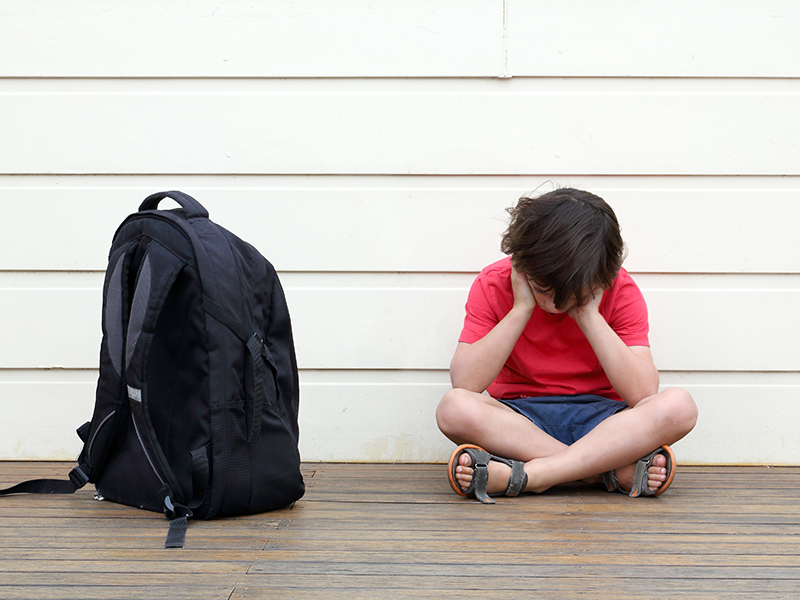No products in the cart.
Encourage, rather than push children to succeed
Research and expert opinion is veering to the conclusion that parental motivation and encouragement work better than pressurising children to succeed: Aruna Raghuram
The life cycle of a child to young adult is defined by intense competition in school, college, university and workplaces. What if my child doesn’t make it in this pressure-cooker environment? This fear often propels parents to push their children too hard.
The consequences of pushy parents driving their children round the bend are evident in the country’s rising student suicides. According to National Crime Record Bureau (NCRB) data, 59,239 students committed suicide between 2018-2022 — i.e, a student died by suicide every 42 minutes.
While suicide is the extreme response, there’s no shortage of research that indicates children who are pushed too much and too hard by overbearing parents to outshine in academics and/or extra-curricular pursuits, experience stress, anxiety, depression, and low self-esteem. All too often unrealistic parental expectations backfire with children performing poorly in academics.
A 2015 research study of the American Psychological Association (APA) reveals that parents setting too high expectations can be counterproductive. The study found that while high parental aspiration led to better academic outcomes, when aspiration exceeded capability, children’s achievements decreased proportionately.

Meenakshi Gupta
“Some parents tend to push and pressurise children because of their own ‘unlived lives’, in the words of Swiss psychoanalyst Carl Jung. For instance, if a mother aspired to become a doctor but could not, she is likely to push her child to study medicine to fulfil her unrealised aspiration. Competitive parents also push their children to bask in reflected glory. ‘If my child does better than his peers, I am a better mother than others’. Such wish fulfillment is not healthy but negative pressure,” says Meenakshi Gupta, an Ahmedabad-based psychotherapist.
According to Gupta, the burden of negative parental pressure usually tells on children — they withdraw socially, become casual about studies, throw tantrums and suffer anxiety and depression. “Many children begin to believe that they are not good enough. To overcome their low self-esteem, they try to become perfectionists. Such children may seem outwardly happy but are anxious and disturbed within. Some may also rebel and misbehave,” adds Gupta.
US-based psychotherapist, author and motivational speaker Amy Morin, writing on the website www.verywellfamily.com, details other repercussions of exerting excessive pressure on children. They may resort to cheating in exams/assignments, refuse to participate in activities where they feel they will not shine, and suffer sleep deprivation.
Research and expert opinion is veering to the conclusion that parental motivation and encouragement work better than pressurising children to succeed. A definitive research study published the in Canadian Journal of School Psychology (2009) found that motivation rather than “pressure” led to higher academic achievement in school children.

Archana Mohan
Archana Mohan, the Bengaluru-based co-founder of Bookosmia, an online website that publishes children’s writing, and mother of 13-year-old Arnav, concurs. “There’s a big difference between encouraging and pushing children. In the former, unconditional support and encouragement from parents motivates children to realise their full potential. When parents push children too hard and/or into activities they dislike, children become demotivated and stressed. Childhood is a time of carefree enjoyment. Parents have a duty to support and nurture their children; rather than drive them over the edge in pursuit of their own unfulfilled ambitions,” says Mohan.
Similarly Dr. Tana Trivedi Joshi, faculty at Ahmedabad University and mother of ten-year-old Kiara, believes that when children receive unconditional love and encouragement, they develop intrinsic motivation to achieve and perform better. “We take care not to be competitive parents and don’t exert academic pressure on Kiara.

Dr Tana Trivedi Joshi
Instead we explain the implications of not completing school work to her. For instance, if she doesn’t complete homework, she will have to face the consequences next day in school. We encourage her to take responsibility for her actions. Respecting her as an individual has worked wonders,” says Joshi adding that they do “nudge” her to exercise more and maintain continuity in extracurricular activities. “But she knows that if she does not like an activity, she can drop it. So, there is no pressure.”
So how much parental ‘nudging’ is appropriate and when does it transform into stress-inducing pressure?
Meenakshi Gupta (quoted earlier) says that there’s a fine line between motivating children to excel and pushing them to succeed at all costs. “To strike this balance, it’s important for parents to understand their child’s strengths, aptitude and preferences, and mutually discuss the way forward. More important, listen and hear out your children and assure them of your unconditional love and support whether they succeed or fail. In parent-child relationships based on mutual respect and open communication, parents will instinctively know when they are crossing the line between encouragement and pressurising children,” says Gupta.
“Children will blame pushy parents for all their failures”

Nitin Pandey
Nitin Pandey is founder and CEO of parentune.com, an online app that offers advice for parents from a panel of 500 experts including pediatricians, child psychologists and education experts. Excerpts from an interview:
Why do parents push their children to succeed?
Every parent wants the best for her child. Somewhere along the way, this becomes wanting her child to be the best. That transition happens unintentionally for parents. But it results in the child becoming stressed out. That’s when things get difficult for children and parents.
What do children expect from parents?
Children of all age groups don’t like to be repeatedly told to do something. In the early years specially, children are curious and love to explore. By pushing them too hard to succeed, parents are interfering with the natural process of exploration and learning.
Moreover, children want to be heard and respected. They want to be treated as individuals. They want choices and a say in their own life. When parents push their children too hard all these expectations are belied.
What is the psychological impact of putting too much pressure on children?
Children lose self-esteem. They hesitate to express themselves with peers and adults. They lose confidence in their own abilities. Some children rebel and stop participating in activities even if they are good at them. Others may lose interest in trying new things for fear of failure.
The parent-child relationship becomes a casualty when pushing is the parenting style. Children start blaming their parents for their failures and lose faith in them. They stop sharing their fears and anxieties with parents. This breakdown in communication is one of the worst outcomes.
Please suggest ways and means parents can encourage children without being pushy.
My suggestions:
- Evaluate problems and situations from your child’s perspective rather than your own.
- Create a democratic home environment where there is room for dissent.
- Understand your child’s emotions, not just what she is verbalising, but also non-verbal cues, and moderate your choice of words accordingly.
- Invest time in learning about her aptitude and interests, and adjust your expectations accordingly.
- Listen to your child without interruption.
- Discuss pros and cons of any action and always give your child options. Answer her questions patiently.
- Allow her to make mistakes but also ask her to reflect and learn from them.
- Appreciate positive effort without giving false praise.














Add comment